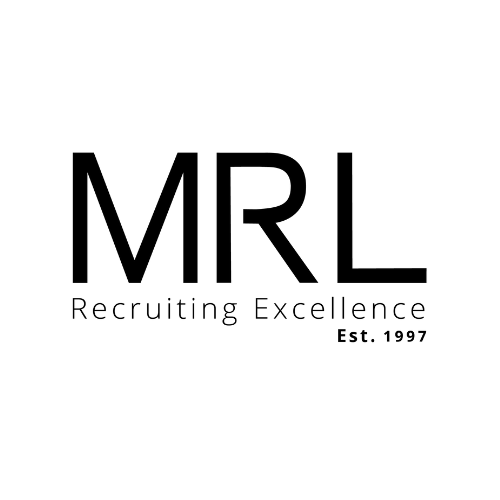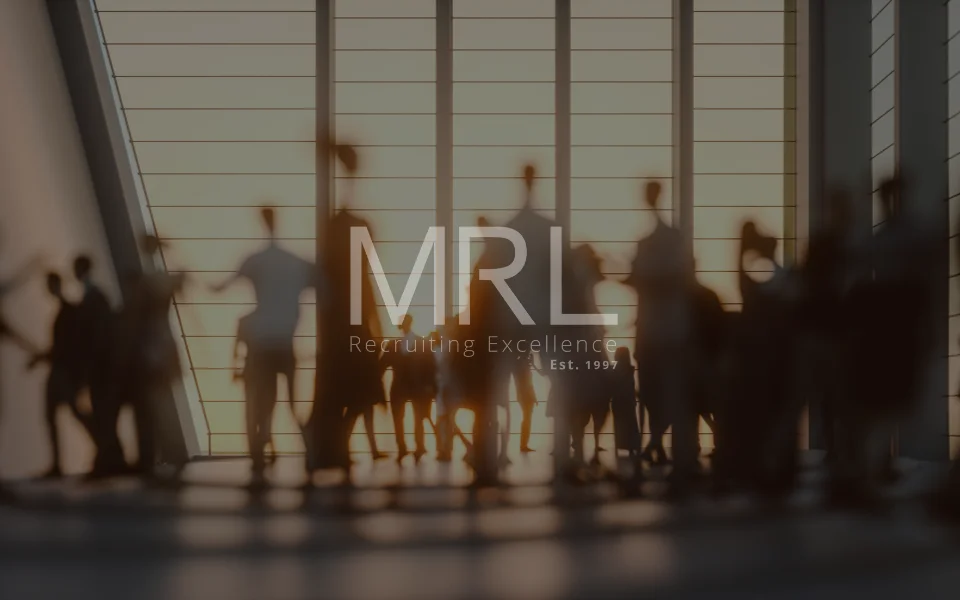A Guide to Career Transitions in High-Tech Industries
09 Jul, 202410 minsChanging careers within or between sectors in the tech industry can bring exciting opportuni...

Changing careers within or between sectors in the tech industry can bring exciting opportunities to develop your skills and explore new specialisms. With tech skills opening doors to so many different industries, you may find you’re qualified for more jobs than you realise. Nevertheless, a change of career can easily become a daunting prospect where you can feel apprehensive about stepping into the unknown. Take a look below at our guide to career transitions in high-tech industries, to prepare yourself for the next step in your career.
How to approach a career change
Depending on your area of expertise and the area you want to work in, a tech career change could be a relatively simple process. But for most people, a career change is a big step that requires careful planning and sometimes, additional training. When considering a career change, the first thing to do is create a plan. This means really working out what you want to do, why you want to do it, and how you can make it a reality.
The extent to which the career-change process will be quick and straightforward depends on how different your new career will be from your current one. If you’re planning a major change of direction, you’ll need to explore training opportunities, research companies, build a new professional network and make a long-term plan to prepare you fully for the transition. You’ll also need to work out how to present yourself to prospective employers, and craft a narrative around your career change, both in your resume, and for interviews, that makes you seem an attractive prospect.
What to consider when changing careers within the tech industry
Changing careers from one tech role to another presents plenty of opportunities. You might be unsure which direction to take with your career, but there are several things you can do to gain some clarity for your future decisions. Firstly, consider your skills. These include both technical skills and transferable skills. It’s important to understand whether you have desirable skills for tech roles besides the one you currently work in. You’ll also want to consider your soft or transferable skills, and which tech jobs they’re suited to.
Another consideration when you’re trying to change careers within the tech sector, is to assess the current industry trends and identify areas of opportunity that fit your skill set. If you have expertise in AI, cybersecurity, cloud computing, full-stack development or data integration and analytics, you’ll probably find your skills are in-demand across the tech industry and beyond. However, it’s also important to look at overall hiring trends before you decide to make the career-change leap. Investigate the current industry direction of travel, and whether companies are hiring or firing, before you make your move.
Think about whether you can leverage your current connections for your benefit in changing careers. Have you worked with anyone who can assist you in transitioning into a different role within the wider tech sector? If not, you may need to expand your network by attending industry events or joining new associations. Training opportunities can also be an effective way of not only learning the necessary skills for a career change, but introducing you to new connections.
Striking the right tone with your applications
David Stone, Chief Executive of MRL Consulting Group agrees there are plenty of opportunities for career change within the tech industry if you strike the appropriate tone in your applications. He says:
“The world of technology is ever evolving and becoming more and more interconnected, giving modern-day jobseekers the opportunity to transition in their career. It’s essential that you highlight the skills you’ve mastered and the most relevant projects for the role you’re applying for either in a cover letter or as close to the top of your CV as you can.
We always recommend keeping a few versions of your CV ready at all times, so you can use the one most applicable to the job you’re applying for; the differences might seem insignificant to you, but the slight change in language and focus will mean the difference between your CV standing out or getting lost in the dozens if not hundreds of others that the hiring manager is receiving.
Ultimately, working with a consultancy like us ensures that your best foot is put forward for every role and that your CV is not only received but communicated in the way you intended during regular briefing calls where our consultants present you to the companies you want to work with. Many larger companies have implemented AI to sort through initial applications, grading them against very specific criteria and rejected based solely on the rules they’re programmed to follow; working with a consultancy will bypass this as we have direct contact with hiring managers, ensuring your profile gets to where it needs to go.”
Adapting your resume for a tech career change
Adapting your resume for a career change is one of the most significant steps to transitioning into a new role. It may be necessary to re-work your CV to emphasise your skills over your work experience. It’s common to use a functional or skills-based CV format when you’re changing careers. This structure places your skills more prominently than your work experience and allows you to create a more compelling narrative for how your existing skills can be put to use in a new role.
Other important elements of your CV for a tech industry career change include:
Your CV summary: use this section to outline why you’re changing careers, what you hope to achieve and what you feel you can bring to a new role. This is the first thing the employer will read, so it sets the tone for how they’ll interpret everything else in the document.
Your work experience section: depending on how close your new chosen role is to your current career, your work experience section can still be significant. Consider how you can use this section to highlight skills that are valuable in the new sector, and focus on including keywords that match your new desired role.
Your education section: if you’ve re-trained for your new career, you’ll want to feature your education section prominently in your career change resume. Consider adding it above your work experience, or even first, above your skills section. A commitment to continuous learning is always a good sign for employers.
Your skills section: for a career-change resume, it’s essential to showcase your skills and knowledge, and demonstrate how you can put them to use in a new role. You might want to place your skills section higher up than your work experience and dedicate more space to it than you would in a traditional CV. Some key skills and keywords to add to your tech resume might include:
- AI and machine learning
- Cybersecurity and privacy
- Cloud computing
- DevOps
- Automation
- Programming languages (Python,HTML, Javascript, C++)
- Operating systems
- Digital transformation
- Data analytics
- Full-stack development
Your cover letter: another tool for explaining your career change and making a compelling case to new employers is your cover letter. You can use this to expand on why you’re changing careers, and what you hope to bring to your new role. Concentrate on highlighting one or two key skills and achievements from your career, and how they can benefit you in your new career direction.
Preparing for interviews in the tech sector
The important thing when preparing for interviews in the tech sector is not to be daunted or overawed. If you have plenty of experience in another field within high-tech industries, you’re likely to find you’ll have more in common with employers in your new sector than you first anticipated.
Do your research on the company and the current trends in the industry, and make sure you’re clear on the narrative of why you’re changing careers. Be prepared to explain what you can offer over candidates who might have more experience in the sector, and how your transferable skills can help you settle into the new role. Finally, if you’ve done all the necessary planning, re-trained, researched the job market and industry thoroughly and built the right connections in the sector, you should feel confident and relaxed going into your interview.
Get ahead of your competition with Jobseeker
If you’re not going to use a consultancy like MRL, then taking advantage of a website like Jobseeker is your next best bet. On Jobseeker, you can create a modern CV, search thousands of jobs, compose cover letters and track all of your applications. Having a website that allows you to keep everything together is a game changer and will save you hours of time in the long run.



